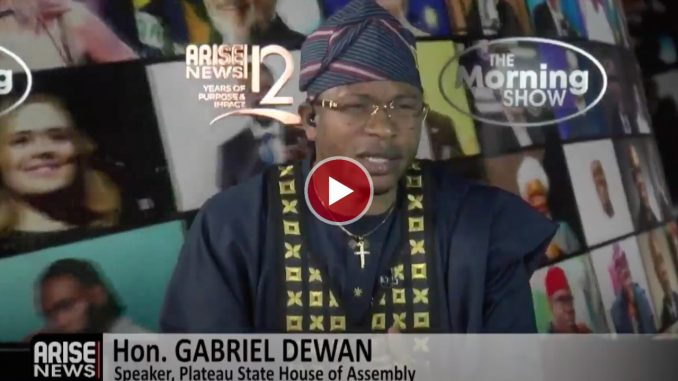
Speaker of the Plateau State House of Assembly, Hon Gabriel Dewan, has voiced his opposition to the creation of additional states in Nigeria, arguing that the focus should be on addressing pressing national issues rather than expanding administrative structures.
He further argued that governance in Nigeria is structured across different levels, from the federal to state and local governments, and that strengthening the grassroots would be a more effective way to address concerns of marginalisation.
“I am against any creation of additional states for now. The reasons are very simple. I don’t see the need for creating more states when we have yet to manage the existing ones. We have so many issues that we need to channel our energy and strength to salvage the nation rather than creating more states to add more wages to the nation,” he said.
“For me, (marginalisation) is not the excuse because we have a government at the grassroots level. We have councillors, we have chairmen, we have house members, we have a house of reps, we have senators, and we have governors before the president. If the governors are far away from the citizens, what we need to do is to empower our local governments and councillors who are close to the electorates at the grassroots, and people will feel the impact of government. It’s not about the creation of states,” He added.
Speaking during an interview on ARISE NEWS on Thursday, Dewan stated that Nigeria is yet to effectively manage its existing states, making the creation of new ones unnecessary.
Highlighting the country’s socio-economic challenges, Dewan pointed out that Nigeria is grappling with high unemployment rates, a large number of school dropouts, infrastructural decay, and public health concerns. According to him, these issues should take priority over increasing the number of states.
When asked about arguments that the creation of new states would address injustices and marginalisation, Dewan dismissed the notion, stating that unity and fairness should be prioritised instead.
“Yes, there are a lot of things that make people believe that injustice is being perpetuated in this nation, but that is not a yardstick for the creation of more states. Instead, we should come to a round table to discuss the way forward. For me, I think we should channel ourselves towards preaching unity and treating each other as one entity,” he said.
He suggested that devolution of power from the federal and state levels to the local government structure would ensure that governance is more accessible to the people.
“If it is established that the governors or presidency are far away from the citizens, then let’s empower our local government. Let’s reduce some of the powers vested at the top down to the grassroots, and the people will feel the impact of the government,” he added.
Addressing concerns about ethnic groups seeking autonomy through state creation, Dewan maintained that every ethnic group already has representation at the grassroots level, even if they are unable to produce a state governor.
“There is no ethnic group that does not have councillors at the grassroots level. They may not have the capacity to become governors in their state, but they have the capacity to become councillors and local government chairmen within their jurisdiction. That is why I said the council and councillor should be empowered, and power should be reduced from the top down to the grassroots. That will give ample opportunity for all ethnic nationals who feel marginalised to have a voice and representation at the grassroots level,” he stated.


